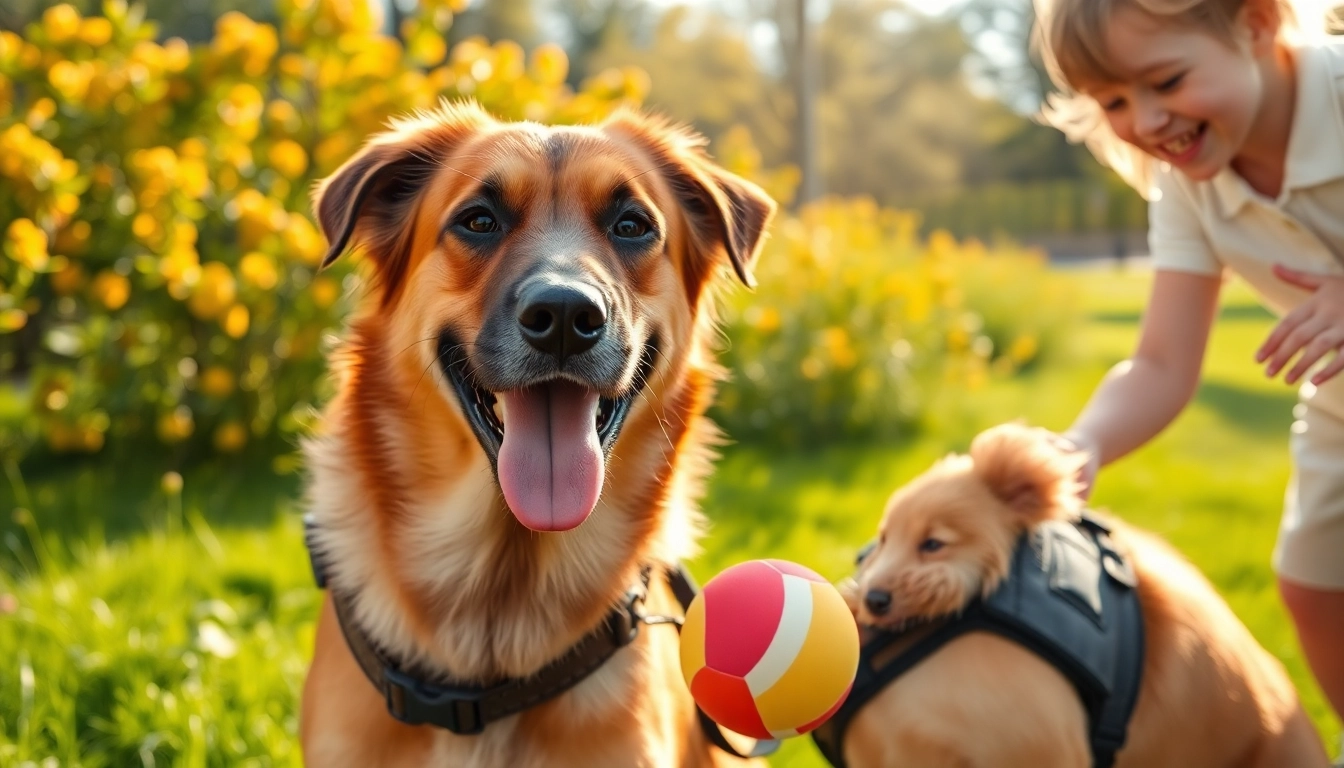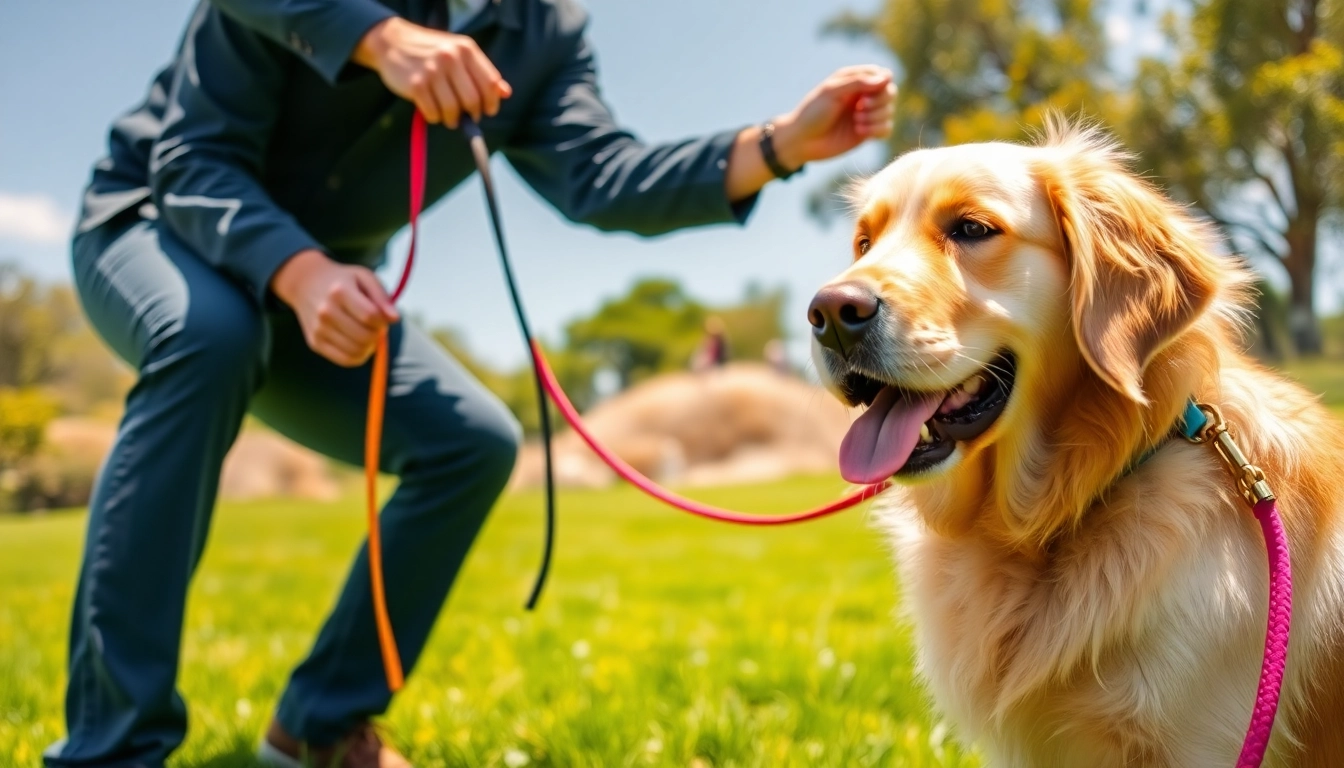Understanding Service Dogs for Sale
In recent years, the demand for service dogs for sale has seen a significant rise. These specially trained animals play an essential role in supporting individuals with disabilities, providing both physical and emotional assistance. Understanding the multifaceted nature of service dogs is vital for those considering this life-changing option.
The Role and Benefits of Service Dogs
Service dogs are trained to perform specific tasks that mitigate their handler’s disabilities. The benefits of having a service dog extend beyond mere companionship; they can significantly enhance the quality of life for their owners in various ways:
- Increased independence: Service dogs can assist with daily tasks, enabling individuals to live more independently.
- Emotional support: These dogs offer companionship and comfort, which can be crucial for those dealing with mental health issues.
- Task-specific training: Service dogs can be trained to perform specific tasks such as guiding individuals with visual impairments, alerting handlers to medical episodes, or retrieving items.
- Social interaction: A service dog can draw attention and provoke conversations, helping their handlers interact more comfortably in social situations.
Types of Service Dogs Available
There are various types of service dogs, each trained to assist with specific disabilities:
- Guide Dogs: These dogs are trained to help individuals with visual impairments navigate their surroundings safely.
- Mobility Assistance Dogs: Trained to assist individuals with physical disabilities, these dogs can help with balance, provide support while walking, or retrieve dropped items.
- Medical Alert Dogs: These dogs are trained to detect medical issues such as seizures or low blood sugar, alerting their handlers or providing assistance during an episode.
- Emotional Support & Psychiatric Service Dogs: These dogs are trained to assist individuals dealing with anxiety, PTSD, or other mental health conditions, providing emotional stability and support.
Legal Regulations Regarding Service Dogs
Understanding the legal framework surrounding service dogs is crucial. Under the Americans with Disabilities Act (ADA), service dogs are defined as dogs that are individually trained to perform tasks for people with disabilities. Key points to remember include:
- Service dogs must be trained to perform specific tasks directly related to their owner’s disability.
- Emotional support animals, while beneficial, do not qualify as service dogs under the ADA.
- Public access rights are granted to service dogs, allowing them to accompany their handlers in most public spaces.
- Handlers may be asked only two questions regarding the service dog’s training and the tasks it performs.
How to Choose the Right Service Dog for Sale
Finding the right service dog is a deeply personal process that requires thoughtful consideration and planning. Potential owners must evaluate various factors to ensure that a service dog is the right fit for their unique needs.
Assessing Your Needs and Lifestyle
Before purchasing a service dog, you should assess your lifestyle and specific needs:
- Identify your disability: Consider how your disability affects your daily life and what specific tasks the service dog could assist with.
- Daily routines: Assess your daily routine and how a service dog would fit into it, including time for exercise, training, and companionship.
- Living situation: Evaluate whether your home environment is suitable for a service dog, including space, accessibility, and distractions.
Considerations for Training and Socialization
Training and socialization are critical components in the development of a service dog:
- Training Options: Decide whether you want to adopt a fully trained service dog or train it yourself.
- Socialization: Ensure the dog has exposure to various environments and situations to develop good behavior and adaptability.
- Follow-up Training: Consider ongoing training programs that may benefit both you and your service dog over time.
Finding Reputable Organizations and Breeders
Investing in a service dog involves selecting a reputable organization or breeder to ensure you receive a well-trained animal:
- Research: Look for organizations that specialize in service dogs and have a positive reputation within the community.
- Ask the Right Questions: Inquire about their training methods, health clearances, and after-sale support.
- Visit Facilities: If possible, visit the training facilities to assess their practices and the living conditions of the dogs.
What to Expect When Purchasing Service Dogs for Sale
The journey of finding a service dog culminates in a purchase, which comes with its own set of expectations and experiences.
Costs Associated with Buying a Service Dog
The financial aspect of acquiring a service dog can be significant:
- Initial Cost: The price for trained service dogs can vary widely, depending on the dog’s training, breed, and the organization.
- Ongoing Expenses: Consider additional costs, such as food, veterinary bills, grooming, training, and supplies.
- Insurance and Financial Aid: Explore whether insurance covers any costs related to service dogs or if specific organizations offer grants or funding assistance.
Health Clearances and Certifications
Health clearances ensure that your service dog is in optimal health to perform its duties:
- Health Checks: Ensure that the dog has undergone a thorough health examination and is free of genetic conditions.
- Certification: Request proof of the dog’s training and any relevant certifications from recognized organizations.
The Transition Period: Integrating Your New Service Dog
After bringing your new service dog home, expect a transition period as it acclimates to its new environment:
- Adjustment Time: Allow time for both you and your dog to adjust to each other’s routines and behaviors.
- Establish Boundaries: Set clear boundaries and rules for your service dog to promote a healthy relationship.
- Ongoing Training: Consider continuing training and socialization during this period to reinforce good behaviors.
Training and Ongoing Support for Service Dogs for Sale
Training does not end with the purchase of a service dog. Ongoing education and support are crucial for sustained success.
Training Methods: What Works Best?
Fostering a successful relationship with your service dog involves understanding effective training methods:
- Positive Reinforcement: Utilize treats, praise, and affection to encourage desired behaviors and commands.
- Consistency: Be consistent in your commands and expectations to avoid confusion for your service dog.
- Professional Training: Consider enrolling in programs that specialize in ongoing service dog training to refine skills and learn new techniques.
Resources for Continuing Education and Support
Maintaining a service dog’s skills and abilities involves continuous education:
- Workshops and Seminars: Attend workshops to stay updated on best practices in service dog training and care.
- Online Resources: Utilize online courses and forums that provide valuable information and connect you with other service dog owners.
Building a Partnership with Your Service Dog
A successful partnership with your service dog is built through mutual trust and understanding:
- Daily Interaction: Spend quality time with your service dog, engaging in activities that strengthen your bond.
- Understanding Body Language: Learn to read your dog’s body language, which is crucial for effective communication.
- Regular Exercise: Ensure that your service dog receives adequate physical and mental stimulation to maintain its health and alertness.
Success Stories: Real Experiences with Service Dogs for Sale
Hearing from others who have benefited from service dogs can provide inspiration and insights.
Inspirational Testimonials from Service Dog Owners
Numerous individuals have shared their success stories, showcasing the profound impact service dogs can have on their lives:
- Increased Confidence: Many owners report significant boosts in their self-esteem and confidence after relying on their service dogs.
- Improved Social Interactions: Service dogs encourage more social interactions, helping owners feel less isolated.
- Enhanced Daily Functioning: Tasks once deemed overwhelming become manageable with the assistance of a training service dog.
Unique Applications of Service Dogs in Various Environments
Service dogs can operate effectively in numerous environments, demonstrating versatility in their roles:
- Workplaces: Many companies are accommodating employees with service dogs, recognizing the mental and physical benefits they provide.
- Schools: Children with disabilities have benefited from having service dogs in educational settings, promoting learning and social skills.
- Healthcare Facilities: Service dogs contribute to therapeutic environments in hospitals and rehabilitation centers, helping patients cope with stress and anxiety.
The Positive Impact on Life Quality
The overall quality of life for many individuals improves dramatically with the addition of a service dog to their lives:
- Better Health Outcomes: Studies indicate that service dogs can contribute to better health outcomes, particularly in mental health.
- Enhanced Independence: With support from service dogs, many individuals can regain independence and participate in society more fully.



